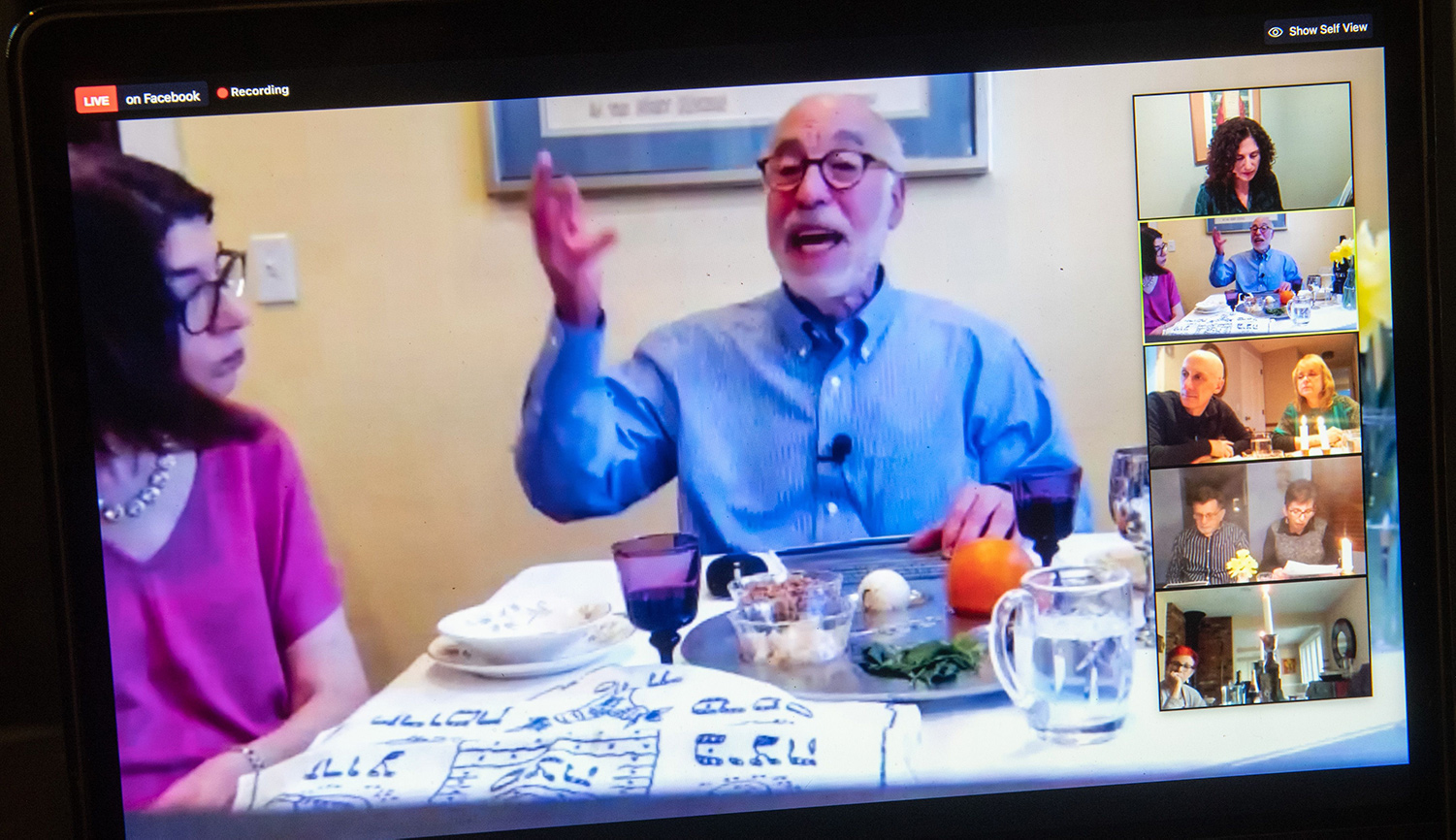
As 2020 comes to a close, Mosaic is looking back at the work we published this year. Today, we focus on the coronavirus, and its effects on Jewish life. Tomorrow, we’ll look at the seminal writing Mosaic produced this year on Israel and the Middle East.
Zoom Seder
The pandemic spread in the early months of 2020, and religious institutions quickly suspended attendance at daily and weekly prayer services. But it was not until the springtime holiday of Passover that Jewish communities at large were forced to confront the most fundamental disruptions to religious observance. The Passover seder is orchestrated to bring the generations together; the coronavirus poses special risks for the elderly. Non-Orthodox celebrants swiftly decided to utilize videoconference technology so that the whole family could observe together safely. But because the holiday poses restrictions on the use of electricity similar to those observed on Shabbat, many Orthodox Jews rejected the so-called Zoom seder. Yet in so doing, they affirmed something else. That something is the subject of the Villanova University law professor Chaim Saiman’s April essay—the most-read work in Mosaic this year.
Jewish Schools in the Future
As spring turned to summer, and summer came to an end, parents around the world were gripped by the question of whether school was going to safely open for millions of children. Our August essay, by the Tikvah Fund’s executive director and Mosaic’s publisher, Eric Cohen, looked into the future to ask how Jewish education in America could change in the long term. The summer of 2020 brought along with the coronavirus a whole constellation of challenges to the American educational landscape: as the economy slowed, the day school funding crisis grew; a number of Supreme Court cases probed fundamental questions of religion and private association; and core elements of American history and American civic life were subjected to impassioned scrutiny. What opportunities for the creative reimagining of Jewish schooling, Cohen asked, has the disruption of the virus put before us?
“Old Dinosaurs”
Looking beyond the schools, what of the myriad Jewish institutions of America? Would the financial insecurity of the moment spell doom for Jewish institutional life, driving the final nail in the coffin of ailing communal organizations? To many the answer was obviously yes. For us, the historian Jack Wertheimer spoke to dozens of CEOs, executive directors, board members, and decision makers throughout the United States, and on the basis of that original research, convincingly overturned that conventional supposition.
A Journey to Israel
Our Krauthammer fellow, Tamara Berens, moved to Israel in September. In an illuminating travelogue, she shares what it was like to journey from the United States to Israel under these unusual circumstances, and what the public-health demands reveal about the character of the Israeli people.
